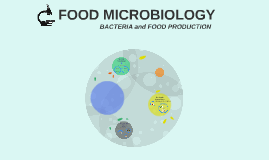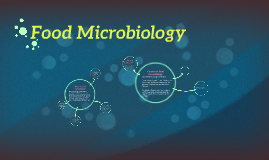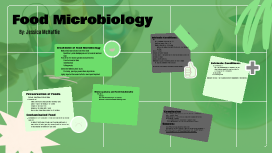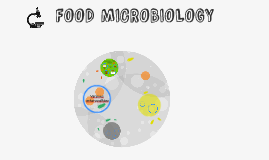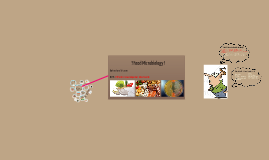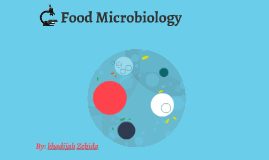Food Microbiology
Transcript: Lactococcus thermophilus What will we EXPLORE under the microscope? I thought there were some bacteria that aided in making food...Right? Advancement in Fresher Foods HPP allows manufacturers to substantially reduce/ eliminate the use of chemical preservatives. As a result, this process cuts costs while creating the "clean-label" - all-natural and organic products consumers are demanding. Pro-biotic cultures have become popular in dairy products because of their health benefits. These cultures are all very select strains, and that they help improve digestion, safeguard the immune system, and keep the body’s intestinal processes in balance. Education: You start by earning a bachelor’s degree in microbiology or a similar discipline. After getting your general microbiology degree, you move onto a Ph.D program, where you start specializing in food microbiology. What about food that comes in tight packaging, such as package meat? How do they survive do long without being attacked by bacteria? HPP doesn't expose foods to the damaging effects of high temperatures Hence, foods retain more of their fresh taste, texture, color and nutrients. Benefits High Pressure Preservation: Method of preserving and sterilizing food, - product is processed under very high pressure, which leads to the inactivation of certain microorganisms and enzymes in the food - preventing harmful microbial growth Benefits are: Prevention of Foodborne Illness –Used to eliminate organisms that cause foodborne illness, such as Salmonella and Escherichia coli (E. coli). ------------------------------------------------------------------------------ Preservation - Used to destroy/inactivate organisms that cause spoilage and decomposition and extend the shelf life of foods. ------------------------------------------------------------------------------- Control of Insects – Used to destroy insects in/on tropical fruits imported into the United States, Also decreases the need for other pest-control ------------------------------------------------------------------------------- Delay of Sprouting and Ripening –Used to prevent sprouting (e.g. potatoes) and delay ripening of fruit to increase longevity/shelf life ------------------------------------------------------------------------------- Sterilization – Used to sterilize foods, which can then be stored for years without refrigeration, generally useful for hospitals Listeria Lactic Acid Bacteria More Naturally Produced Foods Lactic bacteria are used in many different tablets and capsules sold as supplements in the health food industry. Our modern lifestyles often lead to an imbalance in the intestinal processes such as frequent traveling By taking supplements containing lactic bacteria, this balance can be restored, improving the quality of life. Why is Food Microbiology so Important? They go through the process of Dehydration: Method of food preservation that works by removing water from the food, which inhibits the growth of bacteria. Mostly done to perishable foods such as fruits. Process: Water is removed by evaporation (air drying, sun drying, smoking or wind drying) Result:Bacteria, yeasts and molds need the water in the food to grow, and drying effectively prevents them from surviving in the food. What causes food to spoil? World Without Food Science: Food Safety The Sure... , but firstly, I don't want to die so, how is my food protected from food poisoning, such as Salmonella? By Aradhana Sridaran NOTE: RED Sentences are important ideas to note To help ensure that products made in the U.S. or imported in from other countries are safe for human consumption Microbiological testing of ingredients of the finished product is a practice that is becoming more common, and is even required for certain products. Many companies have “test and hold” procedures where the product is not released into commerce until they get results back from the lab ! Food Microbiology ! Perishable Foods: Foods that are susceptible to spoilage, such as meat, poultry, and dairy products, whether cooked or uncooked Semi-Perishable Foods: Semi perishable foods are foods that have little water content/fat such as, margarine, hard cheese, nuts and cooking oil. Semi perishable foods are foods that do not need to be refrigerated. Since bacteria need a higher water content to thrive, they do not appear in Semi-Perishable foods as early, because they hold little water Non-Perishable Foods: Foods that normally do not spoil or decay and can withstand months/years of shelf life such as canned fruits/vegetables, pea nut butter and nuts. Artificial Food Additives are added and can be antimicrobial, which inhibit the growth of bacteria or fungi, including mold. A common antimicrobial preservatives is calcium propionate, Food irradiation is a technology for controlling spoilage and eliminating food-borne pathogens The process is similar to conventional pasteurization : Usually called "cold pasteurization" The fundamental difference between








